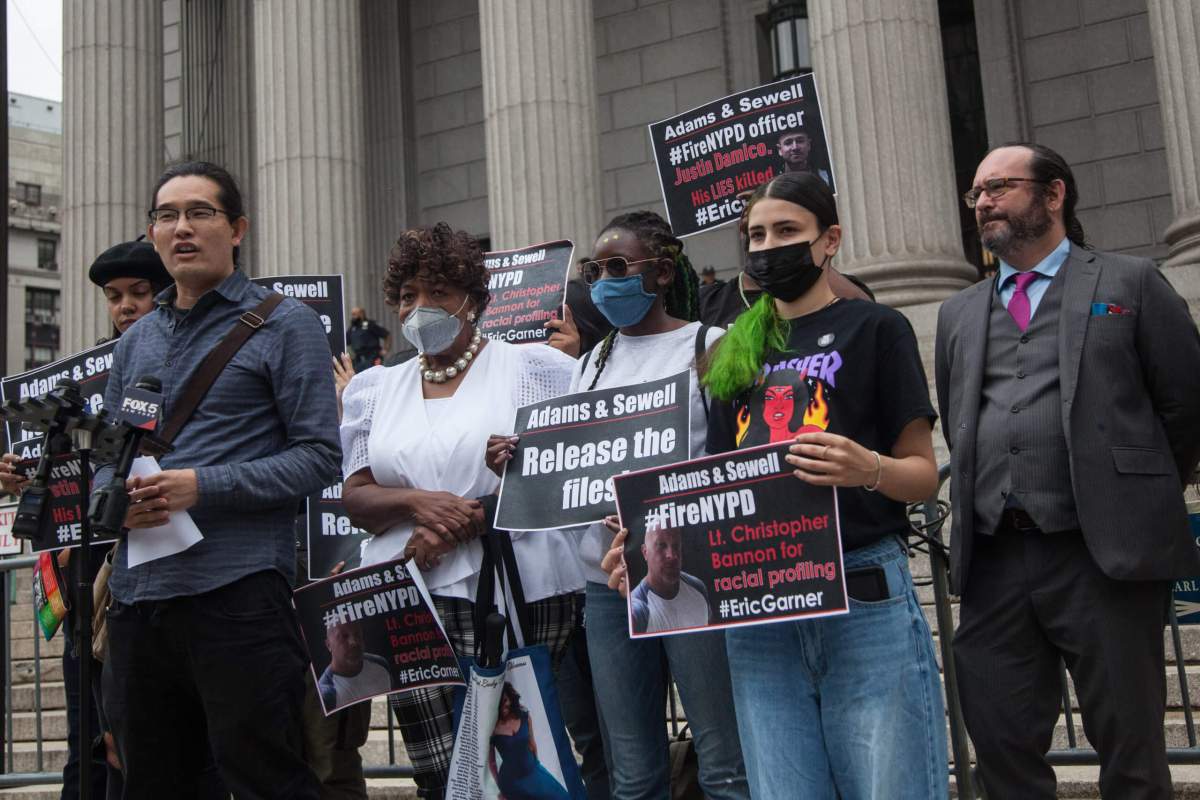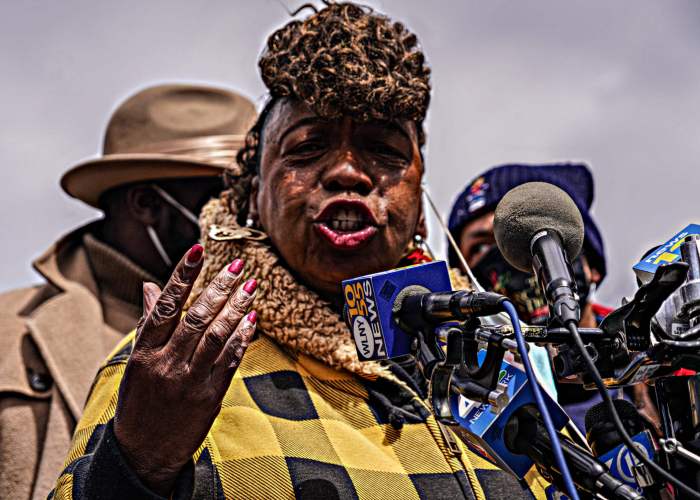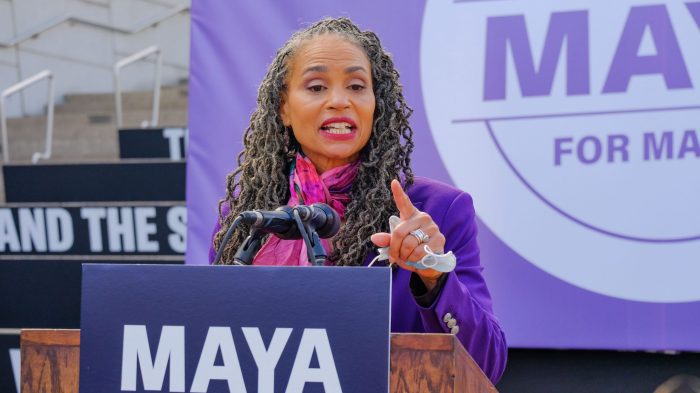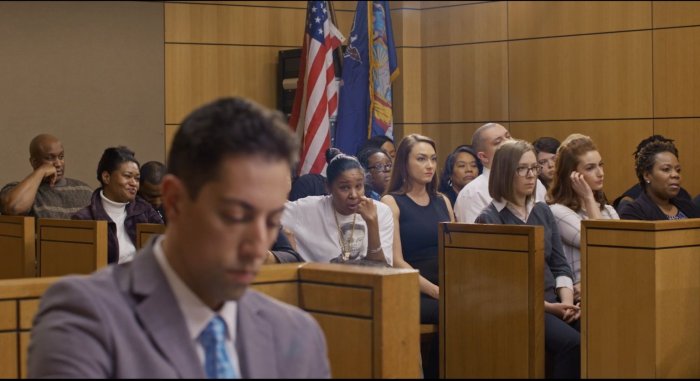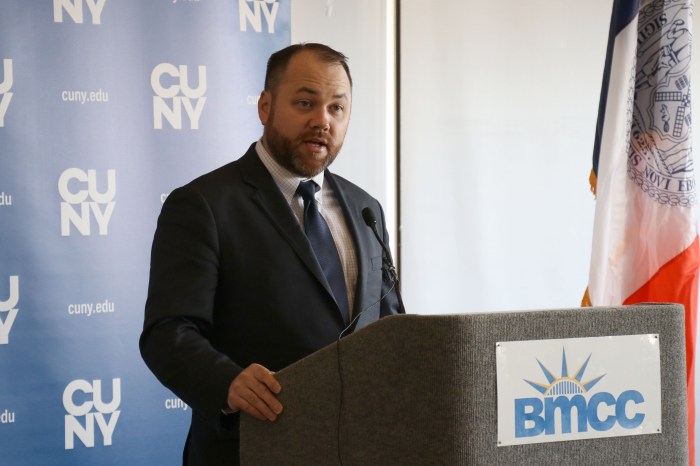A campaign to oust all of the NYPD officers involved in the killing of Eric Garner from the police force took a tentative step forward Wednesday when a supreme court judge ordered the city to cooperate with a legal challenge aimed at publicly disclosing the city’s response to the incident.
“Today was I would say an interim victory in the struggle to get every scrap of paper from the police department and from the Civilians Complaint Review Board,” said Gideon Oliver, the attorney representing Garner’s mother Gwen Carr and several advocacy organizations.
In the eight years since his death, Carr and her family have been fighting for transparency and accountability for Garner’s killing. Daniel Pantaleo, the officer whose chokehold caused Garner’s death in 2014 was fired and stripped of his benefits in 2019. But Carr, backed by Communities United for Police Reform and Justice Committee, has continued to seek the dismissal of the other officers who helped pin Garner down, and the NYPD’s subsequent handling of the incident.
“I’m trying to just get clarity, try to get closure on my son’s murder that and we want all the cops fired that were involved in my son’s death,” said Carr outside the courthouse Wednesday.
In 2019 Carr filed a freedom of information request seeking to recover information surrounding his death and the steps the city did and did not take in response, focused on the NYPD’s role in his death and the city and CCRB’s efforts to investigate and discipline involved NYPD members.
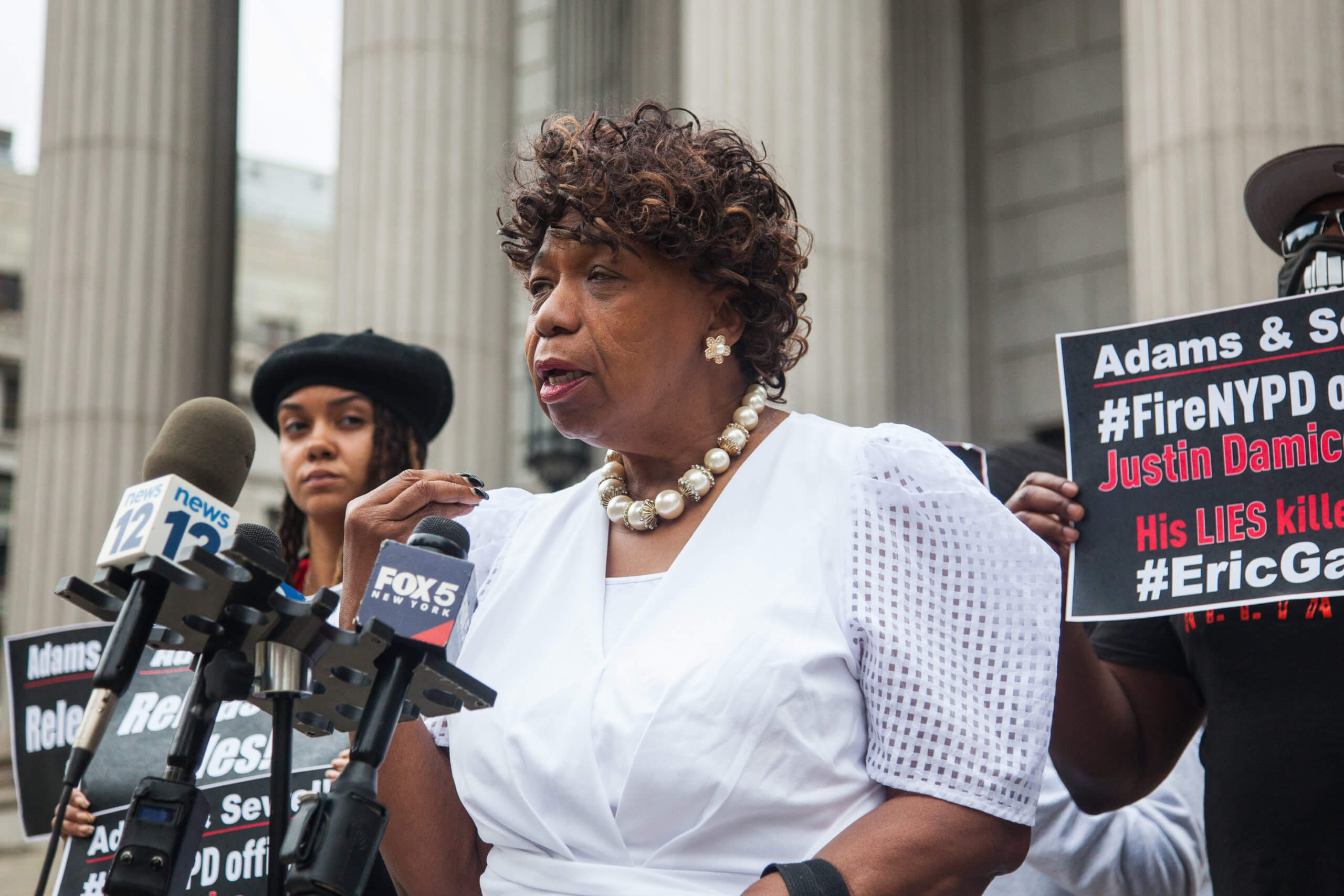
When Carr and the other plaintiffs received a response back, they argued that the documents were unnecessarily redacted in many places and that the agency had withheld certain materials in violations of the FOIL and the Committee on Open Government Regulations.
In response, the city moved to dismiss the FOIL appeal in court arguing that Carr and the other plaintiffs failed to exhaust their administrative tools to contest the process.
After hearing both parties argue their case in court Wednesday, state Supreme Court Judge Erika Edwards, ordered that both parties come back after providing her with more information in a November hearing.
Judge Edwards ordered the city to provide both redacted and unredacted copies of CCRB records for her to review. She asked the plaintiffs to provide a list of names of witnesses who were redacted in some of the written records that the NYPD provided to Carr, which were disclosed elsewhere in various audio recordings that were part of the FOIL, thus rendering the privacy argument for the redactions potentially null and void.
Thirdly, she ordered both parties to meet and confer on narrowing search terms for parts of the request that the city had disregarded.
In response to the order, Oliver deemed the fact that the appeal is moving forward to be a victory, especially the judge’s order for the two parties to collaborate.
“One of the big things that the court is requiring the city to do is to come to the table and negotiate with us over many of the categories of records that we’ve requested where they say that they’ve searched for emails and communications on certain topics and come up with hundreds of thousands of potentially responsive records,” Oliver said in a press gaggle after the hearing.
Danny Kim, a member of one of the plaintiff organizations, Justice Committee, said that he hoped the result of the appeal will help to put pressure on Mayor Adams to seek consequences for the other officers involved in the 2014 incident.
“We hope that could be helpful — the public information would help to ensure that there are these other officers who were also involved in the killing and they are fired and held accountable,” Kim said.



